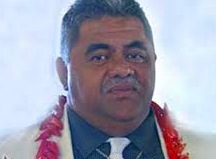
APIA (Pacific Media Watch / Samoa Observer): A few weeks after the Speaker of Parliament in Samoa, La’auli Leuatea Polata’ivao, threatened to ban media reporting from Parliament following a debacle with the Samoa Observer, steps have now been taken to create a media council in the Polynesian country.
On the instruction from the Government, Attorney-General Aumua Ming Leung Wai last week issued a letter where he expressed support for the creation of a media council.
“It has now been over a year and there has been no movement to establish a media council,” Aumua wrote.
“To ensure that standards pertaining to accurate, balance and fair reporting are maintained, a media council must be established as soon as possible.”
But the instruction comes nearly a year before a target date set by the Samoa Law Reform Commission (SLRC).
Presented to Prime Minister Tuilaepa Sa’ilele Malielegaoi on June 28, 2012, the Commission recommended a two-year period for the media industry to establish its own organisation to regulate the conduct of its own members.
'Recalcitrant' media organisations
In last year’s final report on regulating media standards, the Commission criticised the Samoa Observer for its stance against a media council, warning that one or a few “recalcitrant” media organisations may block progress towards self-regulation.
“The Commission is particularly concerned that the most influential print media outlet, the Samoa Observer, has made its official position known: that media regulation is not necessary in Samoa.”
“For these reasons, the Commission also recommends below that a different system be put in place if the media industry fails to regulate itself responsibly in the next two years.”
Last year's report does not fully reflect the concerns of Samoa Observer.
There are fears that any media council will suffer the same fate as other organisations, like for journalists and hotel operators - domination by government supporters and apologists, leading to political interference.
Samoa Observer also called for repeal of criminal defamation laws, long abandoned in other democracies, as well as repeal of the 1993 Newspapers and Printers Act.
That’s a stance the SLRC agrees with, stating that they were “concerned that the Newspapers and Printers Act is largely ineffectual and also possibly dangerous.”
SLRC also “agrees with the shortcomings and unsuitability of the law to address freedom of media and media accountability and is concerned by the trend toward intimidation and threats."
"This is precisely why Samoa is in urgent need of a system of regulation that provides an alternative to litigation,” reads last year’s final report.
Positive government
Government responded positively to this call, passing the new Crimes Act 2013 this year, which drops reference to criminal libel.
In last Friday's letter, however, the Attorney-General did not mention repealing the Newspaper and Printers Act, only that it would conduct a “review.”
Concerns over media standards go back at least a decade, with Prime Minister Tuilaepa on record as expressing concerns about a lack of professionalism and adherence to ethics.
An unintended consequence of any new media council may be pressure on broadcast media to end their practice of broadcasting one-sided speeches from government politicians, making personal attacks against the Samoa Observer and anyone else expressing criticism.
According to the Commission, “[t]here must be a form of media regulation in Samoa that is fair and accessible to all people, since any person may be affected by biased or incorrect reporting, or reporting that contravenes the right to rpivacy."
Media regulation is one of nine areas reported on by the Samoa Law Reform Commission, out of 13 issues papers released so far for discussion.
Below is the letter Attorney-General Aumua Ming Leung Wai issued last week:
I have been instructed to draft legislation to set up a Media Council. Such legislation will take into consideration the recommendations contained in the Final Report on Media Regulation that was prepared by the Samoa Law Reform Commission in June last year.
In drafting such report, I believe the Commission held extensive consultations with stakeholders, particularly media personnel. The recommendations in the report included the establishment of a media council to regulate print, online and broadcast news media in Samoa.
Such regulation will involve, inter alia, adopting a media code of practice and ensuring compliance with such a code. The Commission had also recommended that such council be established by members of the local media within 2 years, failing which the Commission will recommend to the Government to establish a body that will regulate the media in Samoa.
It has now been over a year and there has been no movement to establish a media council. To ensure that standards pertaining to accurate, balance and fair reporting are maintained, a media council must be established as soon as possible.
Our Government has repealed the offence of criminal libel following the enactment of the Crimes Act 2013. It will also review the Newspapers and Printers Act 1992/1993 as recommended by the Commission. It is my hope that my Office can work with our local media in drafting the media council legislation.
If you have any questions, please contact either myself or Ms Loretta Teueli, Assistant Attorney General — Legislative Drafting.



